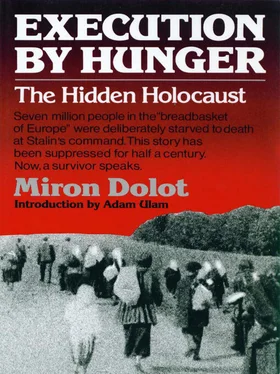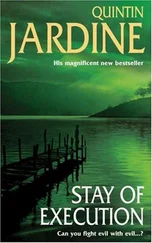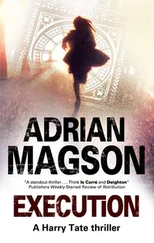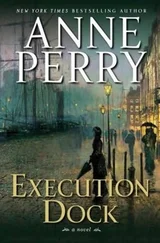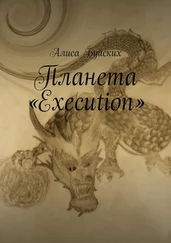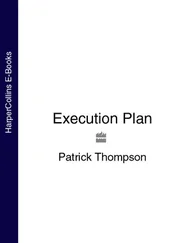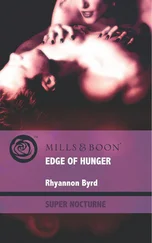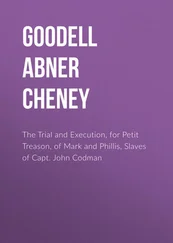As the cases of missing persons grew in number, an arrest was made which shook us to our souls. A woman was taken into custody, charged with killing her two children.
Another woman was found dead, her neck contorted in a crudely made noose. The neighbors who discovered the tragedy also found the reason for it. The flesh of the woman’s three-year old daughter was found in the oven.
One morning, my friend Ivan, who had been living with us, left our house and did not return that day or that night. Days passed and we never heard from him nor found him. Ivan and I had been schoolmates and good friends for a long time. Shost, his father, had never returned from the village jail where I had last seen him. From there, he had been taken to the county center, and then to Siberia. Ivan’s mother also was denounced and arrested only a few days later. Their farm and belongings had been turned over to the kolhosp. The children, Ivan (fifteen) and his pretty nineteen-year old sister, had been left homeless and at the mercy of their neighbors.
As often happened in such cases, the sister soon married. It was the only way for her to find a home and some measure of security for herself and her brother. Her neighbors thought that she acted wisely, and they admired her for her love and consideration of her young brother. They all moved into a house on a small hill near the forest, and for a while it seemed that her action had brought happiness commensurate with those times, to all of them.
But the marriage, unfortunately, was of brief duration. Only a few months later, she was arrested as the daughter of a kurkul, and was herself labeled a “dangerous element in the socialistic society.” So great was the kolhosp organizers’ fear of farmers’ resistance that they tried to destroy not only stubborn farmers but also their wives and children. They did it lest some tiny spark of love of freedom remain that might be fanned into flames of revolt.
The daughter followed the trail of her parents into oblivion, and young Ivan was again on his own. He didn’t wish to remain with his sister’s husband, so my mother invited him to live with us. Thus he became a member of our family, and we obviously missed him after his disappearance and became very apprehensive about his fate.
As the days passed with no sign of Ivan, our anxiety grew. Mykola and I finally decided to undertake a thorough search for him.
Although Ivan had a strong dislike of his sister’s husband and even for his house, there were several reasons why it was possible for him to have gone there. Before collectivization, Antin, Ivan’s brother-in-law, was known in the village as an industrious and respectable young farmer. He was very good-natured and happy, and especially well liked by children, to whom he was very friendly. We had known him since early childhood, and in winter we used his hill for skiing. Antin encouraged this by keeping the hill in good skiing condition, and he even built a ski slide for us. When someone’s skis broke, he would repair them, and after skiing, we would warm our frost-nipped hands and feet by his fire. Although the hillside often became noisy with the shouts and cries of children, he didn’t mind it. On the contrary, he obviously enjoyed our frolicking in the snow.
But now, as the famine worsened, strange rumors began spreading about Antin’s house on the hill. Someone heard a woman scream in his house. Then a second more dreadful tale went around. It was alleged that the smoke coming out of his chimney bore the odor of roasting human flesh. Thinking of these rumors now, we began to see some connection between them and Ivan’s disappearance.
Could all these rumors have some truth in them? And even if true, could he have done such an unspeakable thing to his own wife’s brother? We had to find out once and for all. With these terrible ideas in our minds, we slowly pushed our way towards the hill. Mykola, much younger than I, was pale with fright. He tried to persuade me to return home, but my feeling and concern for my friend Ivan were stronger than my fears. I had to find out whether Ivan was still alive and if he needed help.
I trudged on further while Mykola reluctantly followed me. We got nearer through an unbroken blanket of snow. Upon reaching the house, we thought of Mother’s warnings to take certain precautions. She advised us that Mykola should stay outside, and that I should scream for help if someone inside should attack me. This would divert the attention of the attacker, and signal to Mykola to bring whatever assistance he could.
In accordance with this plan, Mykola took his place at the window clutching a club in his hand. I entered the hallway, leaving the outside door half open. Here I was met by Antin. Without answering my greeting, he gestured toward the door to the front room. As I stepped in, signs of abject poverty struck me from every direction. The walls were bare, there was no furniture, and it was very cold. As I looked at Antin closely, I saw him staring at me, as if estimating my strength.
It was a very unpleasant moment. His eyes were bloodshot and filled with tears. His nervous fingers dangled from his long arms, as if suspended and not belonging to his body at all.
It was apparent that he did not recognize me. I tried to help him remember by mentioning my name and the names of my mother and brother, but it was hopeless. Antin just kept staring at me blankly and silently with his bloodshot eyes.
The man had gone mad, I said to myself. Then the fearful realization came to me that he was twice as big as I! Again, I pictured what those still-strong, violent hands could do to me.
I slowly and cautiously began to back toward the doorway. My movements must have jolted him from his stupor and reminded him of something because he suddenly blurted out:
“You came to ask me where Ivan was?”
It was a relief to hear his voice which, though gruff and unpleasant, relieved the tension.
“Yes, Antin,” I exclaimed, “but—”
He didn’t let me finish the sentence.
“What do you mean by ‘but’?” he interrupted me angrily.
“I mean—how could you know that I came looking for Ivan,” I stammered. “Maybe he is…” I did not finish the sentence, realizing that I had gone too far; or said it too soon at the wrong moment.
But a surprising change came over him. He became more calm and sensible. There were no more outbursts on his part, though he remained agitated and nervous. He kept moving his hands, as if he didn’t know what to do with them; his gaze kept shifting first to the window at his right, then to the one behind him, and finally it again rested on me.
My fear returned as he stood staring at me again. I didn’t have any idea what to do next. In my dilemma, my heart started pounding and dizziness and weakness overcame me. I wanted to yell, cry and scram. Just at this moment, Antin turned and, going into the kitchen, remarked over his shoulder: “I will ask my mother about it.”
But I didn’t wait there any longer. A cold sweat broke out on my forehead and my whole body started trembling. An inner voice commanded me to run—as fast as I could, and my body automatically obeyed. I rushed out of the room and reached the hall, but it was too late. Antin quickly slipped through the kitchen door leading to the hall, and in seconds, stood in front of me. In one hand he held a shiny butcher knife, in the other a dirty rag.
Seeing these, I started shouting for help, and I continued shouting even after I tasted that dirty rag being pressed to my mouth. At that moment, there was the crash of breaking glass as Mykola shattered the window with his club. All of this was accompanied by Mykola’s loud cries for help. My assailant hesitated for a moment and loosened his grip. I used his brief second of confusion to twist myself free and dashed out of the house. Mykola and I both started running as fast as we could through the deep snow, and didn’t stop until we were safely inside our home. It was only then, behind locked doors, that we realized we had both had a very narrow escape.
Читать дальше
